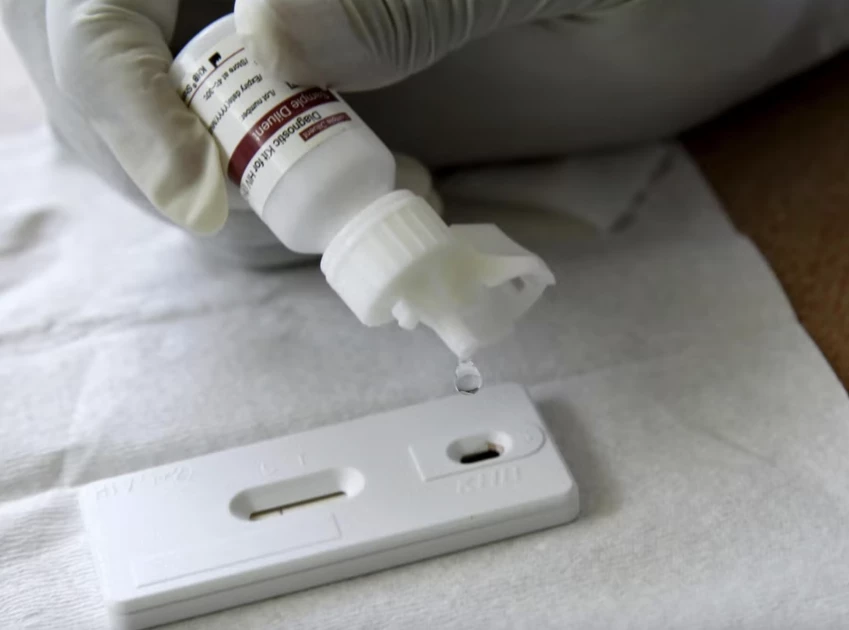US HIV fund halt may cost South Africa 500,000 lives over 10 years: foundation

File photo: A reactor is added to a blood sample to test for HIV (REUTERS/Thomas Mukoya)
"We will see lives lost," the foundation's chief operating officer Linda-Gail Bekker told reporters after South African groups were notified that their USAID grants had been cancelled.
"In excess of half a million unnecessary deaths will occur because of the loss of the funding, and up to a half a million new infections," Bekker said, citing studies modelling the potential impact of the funding cuts.
South Africa has one of the highest rates of HIV in the world, with around 13 percent of the population or 7.8 million people HIV positive, according to government data.
It is one of the largest recipients of funds from the US HIV/AIDS response programme called PEPFAR, a project launched in 2003 and now paused by the funding freeze.
South African organisations who receive funds through USAID said they had received letters from the US State Department overnight saying their grants had been ended.
The notices, seen by AFP, said the grants did not align with US priorities and were "terminated for convenience and the interest of the U.S. government".
"We are anticipating deaths. We can't afford to die," Sibongile Tshabalala, an activist openly living with HIV, said at the media briefing.
"We are facing a situation of chaos and disaster," said Fatima Hassan of the Health Justice Initiative.
- Ending AIDS 'in our hands' -
PEPFAR accounts for about 17 percent of South Africa's HIV budget, ensuring some 5.5 million people receive anti-retroviral (ARV) treatment, according to the health ministry.
The aid cut should serve as a "wake up call" to the government of South Africa, said Kholi Buthelezi, the national coordinator for the Sisonke National Movement of Sex Workers.
The government has sought to allay fears that the funding gap was a death sentence, vowing to strengthen its health system and care.
"We are looking at various interventions to address the immediate needs and ensure the continuity of essential services," President Cyril Ramaphosa said in a national address earlier this month.
The health ministry last week launched a campaign to have more than one million people who are living with HIV on treatment by the end of next year.
"We should not accept that AIDS is here forever. It is not. We want to end it. It's all in our hands and it depends on our will," Health Minister Aaron Motsoaledi said at the launch of the campaign in Soweto, one of the suburbs hardest hit by the epidemic.
The United Nations' UNAIDS agency lauded the initiative and said it will work with the government to ensure the continuity of HIV services.
"This plan protects the human rights of people living with HIV, offering them hope and an opportunity to live healthy and fulfilling lives," it said in a statement, adding it was inspiring.
Alternative ways to fund the HIV programmes were needed immediately, activists said Thursday.
"We cannot afford delays right now. We need top tier prioritisation," public health expert Lynne Wilkinson said.
Want to send us a story? SMS to 25170 or WhatsApp 0743570000 or Submit on Citizen Digital or email wananchi@royalmedia.co.ke
Comments
No comments yet.


Leave a Comment